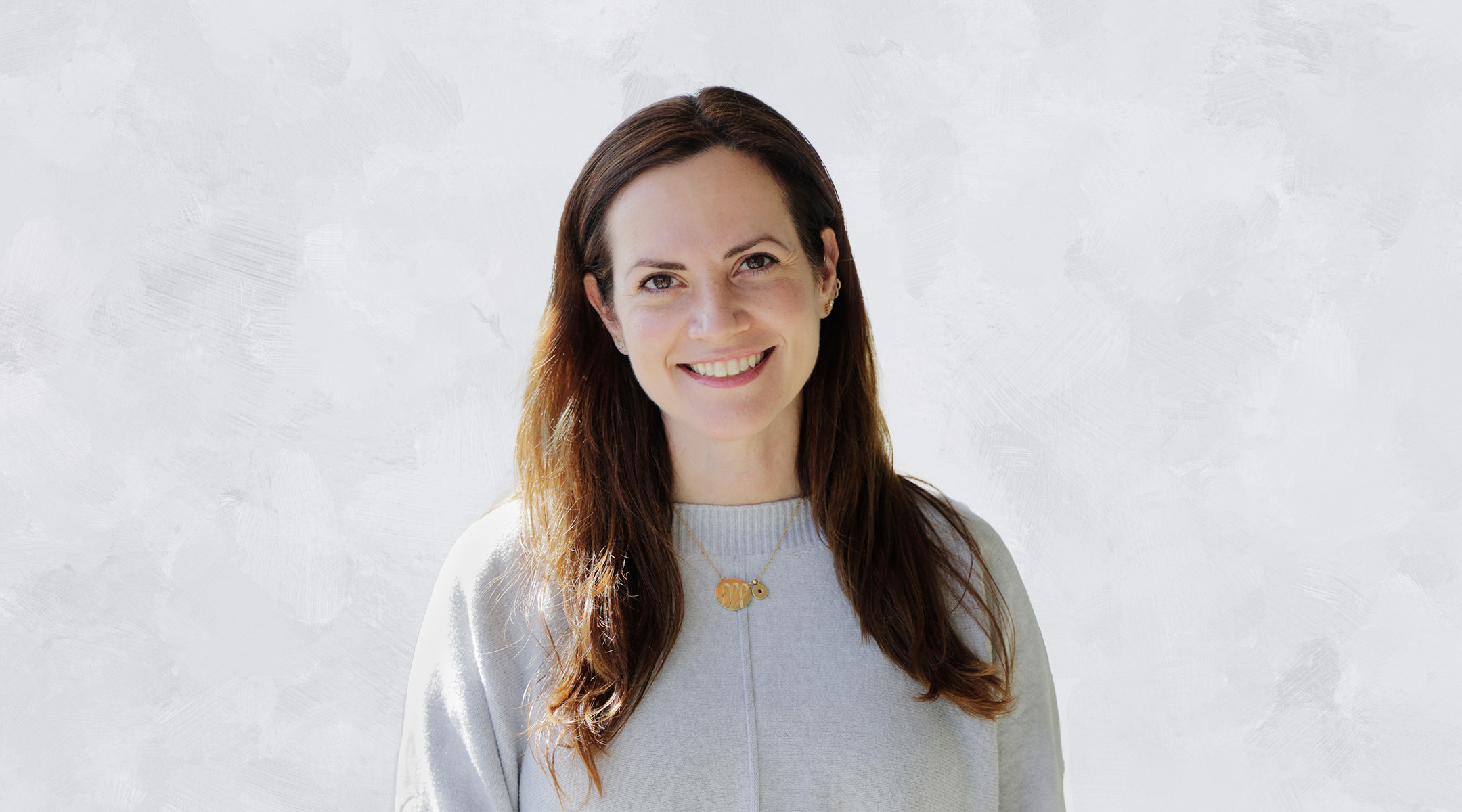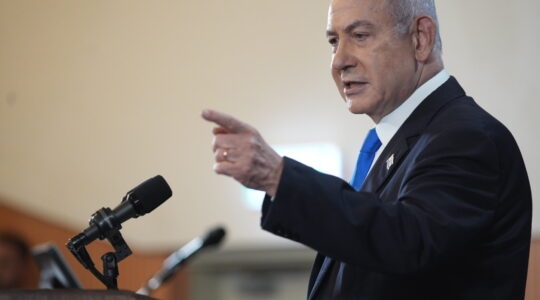When Liora Tannenbaum was pregnant with her second child, she had an eye-opening experience when she told a work colleague that she was unable to breastfeed her children because she’d undergone a double mastectomy to reduce her cancer risk.
The colleague, a haredi Orthodox woman, asked with tears in her eyes if they could speak privately. She confided that she currently had breast cancer but that no one in her strictly Orthodox community knew she was undergoing treatment.
Tannenbaum was stunned.
“I had this moment of realizing that here I had been spending all this time working side by side with someone and had no idea what she was going through,” recalled Tannenbaum, now a mother of four. “It took me being more open about my experience to allow her to feel she could open up about hers.”
The experience spurred Tannenbaum to look for more ways to help women get better support in their health journey. She soon became a peer supporter with Sharsheret, the American Jewish nonprofit organization that supports Jewish women and their families coping with breast cancer or ovarian cancer.
Now, more than a decade later, Tannenbaum is working with Sharsheret to initiate a pilot program in Israel focused on helping English-speaking immigrants get the support they need. Establishing a presence in Israel has long been part of the organizational vision of CEO Elana Silber.
“I’ve always felt that Sharsheret, the Jewish breast cancer and ovarian cancer organization, needs to serve as many Jewish women, men and families facing cancer as possible,” Silber said. “Where do we find the largest populations of Jewish people? In the United States and in Israel.”
Sharsheret, founded in 2001, provides Jewish women with a range of free services, education and support, including connecting them with mental health professionals, genetic counselors, and peers who’ve had cancer or are at increased risk, as well as funding for non-medical services considered critical to the healing process but not usually fully covered by health insurance, such as cosmetic aid.
In Israel, Sharsheret has made an initial investment of $200,000 to train local health counselors, build a peer-to-peer network, form support groups, provide personalized care kits for women undergoing surgery or other cancer treatment, and coordinate events to educate the public about the importance of breast and ovarian cancer screening.
One in 40 Jews of Ashkenazi descent carries a mutation in the BRCA1 or BRCA2 gene that increases the likelihood of developing breast, ovarian, pancreatic, prostate, melanoma or male breast cancer. By contrast, the mutation is present in 1 in 400 people in the general population.
Sharsheret educates both the cancer and Jewish communities about the risks as well as supports those at risk of developing cancer, those diagnosed with cancer, or those grappling with issues of recurrence or survivorship.
Israel offers BRCA mutation testing, but some women who test positive have to wait months to receive an appointment through their HMO for genetic counseling. Sharsheret’s Israel program now offers a counselor who can respond quickly to their questions, obviating the need to wait. Women can access these services through Sharsheret.org/Israel.
Given the ongoing war, many Israeli women facing cancer are dealing simultaneously with the challenges of security threats, family members fighting on the front lines and a nation still grappling with the crisis created by Hamas’s attack on Oct. 7.
“Israeli women with cancer are dealing with a double trauma of war and illness,” Silber said. “The need for available breast and ovarian cancer support is something we can answer, and we will also generate awareness and life-saving conversations in Israel.”
In one case, Sharsheret’s Israel office assisted a young woman with three children scheduled to have a double mastectomy last November as a result of a biopsy done last October revealing early-stage breast cancer. This happened just as the war broke out. With colleagues being recruited to the war effort, she suddenly had to deal with greater work demands just as she was facing surgery.

Liora Tannenbaum, an American immigrant to Israel from New Jersey, is helping build Sharsheret’s cancer support program in Israel. (Courtesy)
While Israel’s medical system, which has free universal healthcare, provides women with a variety of medical and support services, Sharsheret is focused largely on the country’s English-speaking community, whose members often have trouble navigating the Israeli healthcare system.
“For women who only speak English,” Silber said, “it’s helpful to have a patient navigator who can help build a medical team, understand what’s coming and make informed decisions.”
Pnina Mor, an expert nurse midwife with a doctorate in nursing genetics who in 2007 established the first multidisciplinary, one-stop clinic in Jerusalem for BRCA carriers, is working with Tannenbaum to build Sharsheret’s program in Israel. Mor has years of experience working in the medical system in Israel, including at Shaare Zedek Medical Center.
“Pnina is incredible,” Silber said. “She knows everything and everyone, and is able to ease women’s fear of the unknown. She helps women facing cancer feel more in control.”
Mor said that when she was exposed to midwifery during her nursing studies in Israel she realized that midwifery served as a platform for providing complete care for women – not just delivering a baby but addressing any other underlying medical issues.
“I realized women need a more holistic approach, not just concentrating on pregnancies and delivering babies,” said Mor, 73.
Yet midwifery wasn’t considered a profession in Toronto. Mor immigrated to Israel in 1968.
In her years directing the clinic for BRCA mutation carriers, Mor saw that English-speaking immigrants in Israel needed extra support beyond Israel’s Hebrew-language cancer support resources.
Silber said the growing demand for Sharsheret services in Israel and the timing of the program’s Israel launch was inspired by Tannenbaum, whom Sharsheret recently hired together with Mor as the Israel support program coordinators.
A New Jersey native, Tannenbaum decided to immigrate to Israel in her early 20s. Before doing so, her mother asked her to take a genetic test for the BRCA gene mutation due to a strong family history of breast cancer.
The test came back positive, and it turns out the mutation was inherited from Tannenbaum’s father. During a routine biannual screening an abnormality was detected on an MRI, resulting in a biopsy. This led to a series of added tests and biopsies over a period of six months. At the same time, Tannenbaum was looking to expand her family and was concerned about her ability to undergo screening tests while pregnant.
About two years ago, Tannenbaum took further risk-reducing measures and had her ovaries and uterus removed in Jerusalem. She had plenty of support from family members who had moved to Israel over the previous decade.
The experience made her realize that others in Israel — immigrants without family or people similar to her haredi Orthodox colleague — might not have a support network. She contacted Sharsheret to ask if they had ever considered establishing a program in Israel. Ten minutes later, a Sharsheret representative replied and asked when they could talk.
Mor says Sharsheret’s women-centered approach to cancer care is vitally needed in Israel.
“It means being with the woman for whatever she needs, just someone that will listen to her, and be with her,” Mor said. “It means someone places a hand on your shoulder and says: We are here for you.”
To access Sharsheret’s services in Israel and for more information, please visit https://sharsheret.org/israel/ or contact Sharsheret Israel Program Coordinators: Pnina Mor at pmor@sharsheret.org or Liora Tannenbaum at ltannenbaum@sharsheret.org.
This article was sponsored by and produced in partnership with Sharsheret, the national Jewish breast cancer and ovarian cancer organization. This article was produced by JTA’s native content team.
More from Sharsheret





